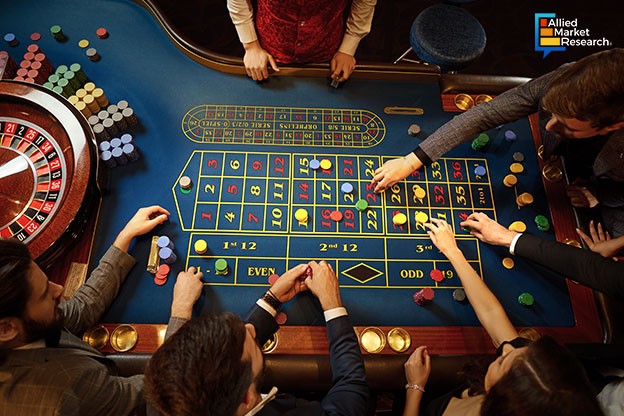Tabletop Games: Exploring Its Evolution and Experience

28 Mar
2025
Highlights:
- Introduction
- Types of tabletop games
- Reasons behind its popularity
- Innovations in the industry
Tabletop games have long been a source of entertainment, bringing friends and family together to engage in strategy, storytelling, and creativity. From classic board games to intricate role-playing adventures, these experiences have evolved to offer diverse and immersive gameplay. While traditional setups relied on physical components like dice, miniatures, and elaborate rulebooks, modern adaptations have embraced digital enhancements, expanding accessibility without compromising the essence of face-to-face interaction.
Why Tabletop Games Continue to Thrive
Unlike other forms of gaming, tabletop experiences emphasize direct human interaction, fostering teamwork, critical thinking, and creativity. The resurgence of board games in recent years highlights the growing demand for social experiences that encourage strategic depth and immersive storytelling. Titles like Gloomhaven, Catan, and Betrayal at House on the Hill have redefined cooperative and competitive gameplay, ensuring that new and veteran players alike find engaging challenges. Furthermore, crowdfunding platforms have fueled innovation, allowing independent designers to introduce fresh mechanics and themes that captivate niche audiences.
Different Types of Tabletop Games
There are many different types of tabletop games, each offering a unique experience. Board games are the most common and include classics like Chess and Scrabble, along with modern hits like Carcassonne and Wingspan. Card games rely on decks of cards and can range from traditional ones like Poker and Rummy to newer ones like Magic: The Gathering and Marvel Champions. Role-playing games (RPGs) allow players to create characters and go on adventures, shaping their own stories in games like Dungeons & Dragons. Miniature war games, such as Warhammer 40K, use detailed figures and require strategic military-style planning. Party games, including Codenames and Cards Against Humanity, are designed for fun and lighthearted group play. No matter what a player’s preference, there is always a tabletop game that suits their style. The tabletop games industry, which accounted for $2.7 billion in 2023, is predicted to gather a revenue share of $5.3 billion by 2035, rising at a CAGR of 5.9% during 2024-2035.
Diversity in Gameplay and Genre
Tabletop gaming offers a wide spectrum of experiences, ranging from lighthearted party games to intricate tactical adventures. Deck-building games like Dominion and Marvel Champions focus on strategic resource management, while tabletop RPGs like Dungeons & Dragons immerse players in expansive worlds where they shape the narrative through character choices. War games, such as Warhammer 40K, introduce a layer of miniature-based tactics, emphasizing long-term planning and battlefield adaptation. This variety ensures that there is a game suited for every kind of player, regardless of experience level or preference.
Blending Traditional and Digital Elements
One of the most exciting trends in tabletop gaming is the fusion of physical and digital elements. Hybrid games integrate apps to manage gameplay mechanics, track player progress, or introduce dynamic storytelling elements. A recent example is Sunderfolk, a cooperative game developed by Dreamhaven and Secret Door. Scheduled for release in April, it blends the feel of tabletop RPGs with digital convenience, using smartphones as controllers to streamline interactions.
Recent Developments in the Corner
Publishers and designers are exploring new themes and mechanics to keep the industry vibrant. The rise of solo gaming modes has expanded accessibility, allowing players to engage in campaigns without the need for a full group. Additionally, the sustainability movement has influenced game production, with companies focusing on eco-friendly materials and ethical sourcing. Digital platforms have also facilitated remote play, with platforms like Tabletop Simulator and Board Game Arena making it easier to connect with players worldwide.
Why Tabletop Games Will Continue to Grow
The appeal of tabletop games has lasted for generations, and they are likely to remain popular. People enjoy the social aspect, creativity, and challenge they provide. While new ideas and technology are shaping the industry, more exciting games are expected to be introduced. Whether players enjoy quick card games, detailed strategy games, or immersive RPGs, tabletop gaming will always have something to offer.
Looking ahead
The evolution of tabletop gaming reflects a balance between tradition and innovation. While new technologies enhance the experience, the core appeal remains rooted in human connection, creativity, and strategic thinking. With the creation of new and exciting games by designers, tabletop gaming has become even more popular, offering fun for both casual and serious players.
Reach out to our experts for insights on the latest growth drivers and investment opportunities in the industry!

Koyel Ghosh
Author’s Bio- Koyel Ghosh is a blogger with a strong passion and enjoys writing in miscellaneous domains, as she believes it lets her explore a wide variety of niches. She has an innate interest in creativity and enjoys experimenting with different writing styles. A writer who never stops imagining, she has been serving the corporate industry for the last five years.
Avenue: Entire Library membership of Allied Market Research Reports at your disposal
- Avenue is an innovative subscription-based online report database.
- Avail an online access to the entire library of syndicated reports on more than 2,000 niche industries and company profiles on more than 12,000 firms across 11 domains.
- A cost-effective model tailored for entrepreneurs, investors, and students & researchers at universities.
- Request customizations, suggest new reports, and avail analyst support as per your requirements.
- Get an access to the library of reports at any time from any device and anywhere.
Related Post
-
How are Submarine Cables Transforming Global Connectivity with Enhanced User Experience?
-
Endoscopy Procedures: Transformations in Techniques and Applications
-
AI-Powered Video Analytics: How the Product Actually Works for enterprises
-
Painting Robots: Transforming Precision Coating and Creative Applications
-
Innovations in Pharmacovigilance Systems Advancing Patient Safety
-
Understanding Edge Security: Keeping Data Safe Near the Source
-
Exploring the Use and Advancements of 3D Laser Scanners in Professional Applications
-
Reinforcing Industrial Controls with Smarter Tools and Training








